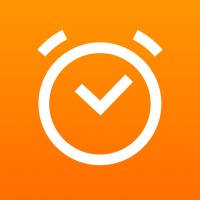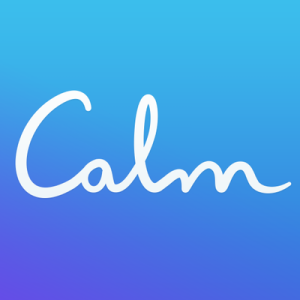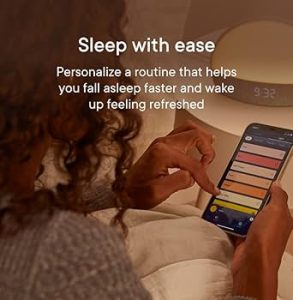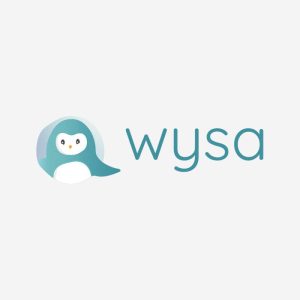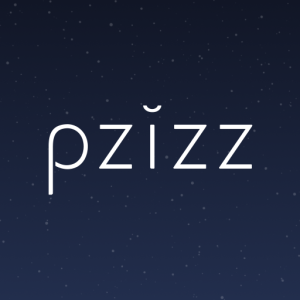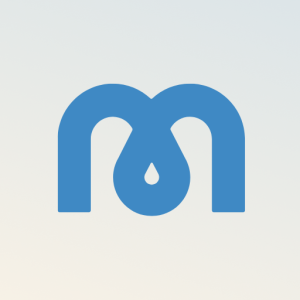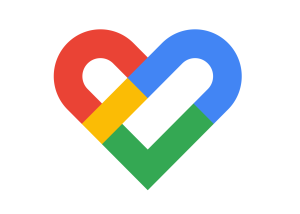Introduction: The Silent Epidemic of Stress and Poor Sleep
Let’s face it—modern life is exhausting. Between juggling work, screen time, responsibilities, and anxiety, millions of people suffer from chronic stress and sleep disorders. In fact, over 70 million Americans have sleep problems, and stress is the #1 cause.
But here’s the good news: Artificial Intelligence (AI) is now stepping into healthcare and wellness. Today, there are smart tools powered by AI that can track your sleep, guide you through meditation, and even adjust your environment for better rest—all with little effort from you.
If you’re looking for a natural, tech-powered way to sleep better and feel calmer, this guide is for you.
Let’s dive into the top 10 AI tools for stress relief and sleep improvement that anyone can use—no tech background needed.
1. Sleep Cycle – AI-Powered Sleep Tracker and Smart Alarm
🛌 What it is: A smart alarm clock and sleep tracker that analyzes your sleep patterns using AI.
✅ Key Features:
-
Tracks sleep cycles via sound or motion.
-
Wakes you up in the lightest sleep phase.
-
Provides sleep quality reports and trends.
💡 Why it works: AI learns your rhythms and ensures you wake up feeling refreshed, not groggy.
Best for: People who want to improve wake-up quality and track sleep patterns.
2. Calm – AI-Personalized Meditations and Sleep Stories
🧘 What it is: The #1 mental wellness app featuring AI-curated content.
✅ Key Features:
-
Personalized meditation recommendations.
-
AI-generated sleep stories and music.
-
Mood tracking for smarter suggestions.
💡 Why it works: Calm’s algorithm suggests content based on your emotions, goals, and history.
Best for: Beginners looking to reduce anxiety and fall asleep faster.
3. Muse – AI Headband That Reads Your Brainwaves
🧠 What it is: A wearable device that uses EEG and AI to train your mind.
✅ Key Features:
-
Real-time feedback on brain activity during meditation.
-
Tracks calm vs. active brain states.
-
Encourages deeper mental relaxation.
💡 Why it works: Muse uses biofeedback and AI to help your brain “learn” calmness.
Best for: Serious users who want measurable, brain-based stress management.
4. Hatch Restore – AI Sleep Assistant with Smart Light and Sound
🌅 What it is: A smart bedside device that creates a custom sleep environment.
✅ Key Features:
-
Combines AI-generated light therapy, meditation, and sleep sounds.
-
Tracks habits and adjusts settings accordingly.
-
Pairs with app to build sleep routines.
💡 Why it works: AI personalizes bedtime rituals and mimics natural circadian rhythms.
Best for: People who struggle with falling or staying asleep.
5. Replika – AI Companion for Emotional Support
💬 What it is: An AI chatbot designed to provide companionship and emotional support.
✅ Key Features:
-
Learns your mood and communication style.
-
Offers empathy-based conversations.
-
Supports journaling and emotional reflection.
💡 Why it works: Talking out emotions reduces anxiety and loneliness.
Best for: Users with emotional stress, anxiety, or insomnia linked to racing thoughts.
6. Wysa – AI Mental Health Coach
📱 What it is: An AI-powered chatbot therapist trained in CBT (Cognitive Behavioral Therapy).
✅ Key Features:
-
Uses CBT techniques to reframe negative thoughts.
-
Personalized support through journaling prompts.
-
Anonymous and always available.
💡 Why it works: Proven techniques delivered instantly, without judgment or waiting rooms.
Best for: Stress, mild depression, and anxiety relief.
7. Oura Ring – AI Sleep and Recovery Tracker
💍 What it is: A sleek smart ring that monitors your sleep, body temperature, heart rate, and recovery.
✅ Key Features:
-
Tracks deep, REM, and light sleep phases.
-
AI provides daily “readiness score.”
-
Syncs with Apple Health or Google Fit.
💡 Why it works: AI looks at long-term patterns, not just one night’s data.
Best for: Sleep optimization and health biohacking enthusiasts.
8. Pzizz – AI Sleep and Power Nap Generator
🎧 What it is: An app that creates dynamic audio sessions using AI.
✅ Key Features:
-
Personalized soundscapes for sleep, focus, or naps.
-
Uses psychoacoustics, not generic white noise.
-
AI ensures each session is unique.
💡 Why it works: Audio-based relaxation tailored in real-time to your needs.
Best for: Anyone needing deep rest, fast.
9. MindSpa – AI Relaxation Tool for Brain Training
🌀 What it is: A wearable and app combo that uses AI-based neurostimulation to guide your brain into calm states.
✅ Key Features:
-
Programs for sleep, focus, anxiety relief.
-
Brainwave entrainment using visual and auditory cues.
-
AI adapts intensity based on your feedback.
💡 Why it works: It actually helps retrain brainwaves toward relaxation.
Best for: Biohackers, neurodivergent users, and stress-prone professionals.
10. Google Fit + AI Stress Detection on Android Watches
⌚ What it is: Android-based smartwatches now feature AI-based stress and wellness monitoring.
✅ Key Features:
-
Monitors breathing, heart rate variability (HRV), and sleep.
-
Sends proactive reminders to relax or breathe.
-
Syncs with wellness apps like Calm or Headspace.
💡 Why it works: Passive data collection + real-time insights = better stress management.
Best for: Android users seeking passive but smart self-care.
🧠 How AI Actually Helps With Sleep and Stress (Backed by Science)
You might be wondering: How can an app or device really help me sleep or reduce stress?
Here’s what the research says:
-
AI can track bio-data better than humans, detecting early signs of poor sleep or stress spikes.
-
Machine learning personalizes relaxation content based on YOUR unique habits and preferences.
-
Behavioral algorithms can build routines that the brain begins to follow automatically (just like brushing your teeth).
-
Mental health chatbots have been proven to reduce anxiety in studies—even if they’re not real humans.
Bottom line? When used consistently, AI tools become an extension of your self-care routine.
🌿 Tips for Getting the Most Out of AI Wellness Tools
-
Be consistent: AI improves results over time with more data.
-
Pair tools: Use a sleep tracker + meditation app for best results.
-
Track your mood: Apps like Wysa and Calm can help connect stress triggers to habits.
-
Turn off distractions: Use Do Not Disturb mode during wind-down routines.
-
Don’t skip the basics: Sleep hygiene (no caffeine, regular bedtime) still matters.
✨ Real User Experiences
Here’s what people are saying:
“I used to wake up exhausted, but after a month of Sleep Cycle + Calm, I sleep like a baby.” – Melissa, 34
“Muse helped me see how active my brain was even during meditation. Now I use it every day to relax.” – Jason, 29
“Wysa helped me manage my anxiety better than anything else I’ve tried. It’s like therapy in my pocket.” – Priya, 26
Conclusion: Your Stress-Free, Restful Life Starts Now
Stress and sleep problems don’t need to control your life. With the help of AI tools, you can take back control of your mind, body, and routine.
Whether you want a better night’s sleep, fewer racing thoughts, or a calmer daily rhythm—there’s an AI tool to help you.
The key is to start small. Pick one tool from this list and give it a week. You might just sleep better than you have in years.
✅ Quick Recap – Best AI Tools by Category
| Goal | Recommended Tool |
|---|---|
| Track Sleep | Sleep Cycle, Oura Ring |
| Reduce Anxiety | Calm, Wysa, Replika |
| Deep Relaxation | Muse, MindSpa |
| Bedtime Routine | Hatch Restore, Pzizz |
| All-in-One Smart Health | Android Watch + Google Fit |
📌 Final Call to Action
👉 Want more wellness hacks using AI?
Subscribe to Simple AI Hacks and get a new life-changing tip each week—free!
